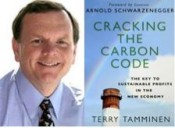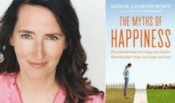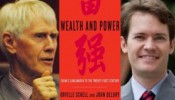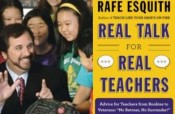Free Forum Q&A: APRIL RINNE Chief Strategy Officer, Collaborative Lab
Written on September 17th, 2013 |
Aired: 09/15/13
Are you doing more sharing these days? In a virtual sense, most of us would probably answer yes. Sharing political petitions, photos shot with our mobile phones, and of course, cute cat stuff. But what about sharing in the real world – are you doing more of that? Well, as a society the answer again is yes. Whether bike sharing, which is rolling out in 500 cities, car-sharing, even Hertz is getting into the game, or apartment sharing through services like AirB&B.
Habits and practices of simpler times like swapping, trading, renting, and sharing, have been reinvented through real-time technologies and peer-to-peer networks to make sharing more efficient and affordable than buying new things.
null
According to the Economist, “Occasional renting is cheaper than buying something outright or renting from a traditional provider such as a hotel or car-rental firm. The internet makes it cheaper and easier than ever to aggregate supply and demand. Smartphones with maps and satellite positioning can find a nearby room to rent or car to borrow. Online social networks and recommendation systems help establish trust; internet payment systems can handle the billing.”
Whether driven by economic hard times or technological innovation, something’s going on here and I’ll be talking about it for the next hour with April Rinne, Chief Strategy Officer of the Collaborative Lab.
www.cclab.
Free Forum Q&A – TERRY TAMMINEN, frmr Secy Cal EPA CRACKING the CARBON CODE Sustainable Profits in the New Economy
Written on September 4th, 2013 |
Aired 09/02/12
When I first met TERRY TAMMINEN, he was living on a houseboat in the Marina and filling a position he’d founded as the first Santa Monica Baykeeper. No too long before that, he had been running a pool services company. And not too long after, he was Secretary of the California EPA.
Tamminen has reinvented himself successfully in several very different worlds — business, government, non-profit, foundation, from the grassroots to the halls of power. All of this for a long time now to achieve a sound and healthy relationship between society and the environment. He pursues that consistent vision with whatever works.
We’ll talk about the ideas in his book, CRACKING THE CARBON CODE: The Key to Sustainable Profits in the New Economy – which is very much a plan of action for companies who figure out that reducing carbon emissions reduces waste and is therefore good for the bottom line. He’ll tell stories of companies that have made or saved money by cutting carbon.
How has he been able to move things forward through politics and government in an era when so little seems to get done? Bottom line, are we moving fast enough? If not, how do we integrate all these different players to accelerate movement in the right direction?
Free Forum Q&A – SONJA LYUBOMIRSKY The Myths of Happiness: What Should Make You Happy, but Doesn’t, What Shouldn’t Make You Happy, but Does
Written on August 13th, 2013 |
Aired: 08/11/13
This week we’re going to talk about happiness. So let’s start with a true-false test. I’ll tell you a supposed fact about happiness, and you decide whether you think it’s true or false.
1. Unexpected pleasures are the most rewarding. True or false?
2. Novelty in a relationship has similar effects on our brain as a high from drugs. True or false?
3. Daily hassles impact our well-being more than major life events. True or false?
4. When it comes to sex, women require more novelty than men. True or false?
5. The genes that underlie who gets divorced are passed down from parents to children. True or false?
6. A smoking habit is not a bigger risk factor for heart disease as a troubled marriage. True or false?
7. Renters are happier than homeowners. True or false?
Okay, let’s see how you did…It turns out, according to today’s guest, all seven statements are true. Yup, renters are happier and women want more novelty in sex than men. Where do I get off making those assertions? All based in science.
Today’s guest, SONJA LYUBOMIRSKY, Professor of Psychology at the University of California, Riverside, is one of the nation’s top students of happiness, and we’re going to talk today about the findings in her new book, THE MYTHS OF HAPPINESS: What Should Make You Happy, but Doesn’t; What Shouldn’t Make You Happy, but Does.
Originally from Russia, SONJA LYUBOMIRSKY received her A.B., summa cum laude, from Harvard University and her Ph.D. in Social/Personality Psychology from Stanford University. Not too shabby. Her research has been awarded a Templeton Positive Psychology Prize, a Science of Generosity grant, a John Templeton Foundation grant, and a million-dollar grant from the National Institute of Mental Health to conduct research on the possibility of permanently increasing happiness. She is author of The How of Happiness, translated and published in 19 countries, and her newest, THE MYTHS OF HAPPINESS.
Free Forum Q&A – ORVILLE SCHELL and JOHN DELURY, Authors of WEALTH AND POWER: China’s Long March to the 21st Century
Written on August 6th, 2013 |
Aired: 08/04/13
Some estimate China will surpass the US to become the leading economic superpower by 2016. On the other hand, July 19th Paul Krugman wrote, “China is in big trouble. …The country’s whole way of doing business, the economic system that has driven three decades of incredible growth, has reached its limits. You could say that the Chinese model is about to hit its Great Wall…”
This week’s guests, ORVILLE SCHELL and JOHN DELURY, have both devoted a lot of time to studying and writing about China, including co-authoring the new book, WEALTH AND POWER: China’s long March to the 21st Century. We’ll explore China’s current story on a number of fronts.
Schell and Delury believe that China’s character has become defined by its pursuit of national greatness to reverse generations of humiliation at the hands of its neighbors and the West. This quest for wealth, power and respect remains key to understanding many of China’s actions today. We’ll talk about China’s history, character, economics, politics, and more.
James Fallows, who’s spent a lot of time in China, writes of their book, “I’d suggest you read it if you’re at all interested in China. It’s both historical and current, and it does a better job than most other books of answering a basic question the rest of the world naturally asks…What does China want?”
Free Forum Q&A – RAFE ESQUITH Multi-award winning 29-year LA 5th grade teacher REAL TALK FOR REAL TEACHERS Advice for Teachers, From Rookies to Veterans: “No Retreat, No Surrender!”
Written on July 23rd, 2013 |
Aired: 07/21/13
This week we’ll spend the hour with RAFE ESQUITH, who’s been teaching fifth graders in LA’s Hobart Elementary public school for nearly thirty years. Now a teacher of teachers, he recently returned from doing that in China.
I first learned of Rafe’s work in 2005, when POV the PBS film series pitched me a documentary, THE HOBART SHAKESPEARIANS, about the full Shakespeare productions that his students – most from families where English is not the primary language – perform each year. The film was directed by MEL STUART, a wonderful director of at least two landmark films – the 1971 Willy Wonka & the Chocolate Factory with Gene Wilder and 1973’s WATTSTAX concert film of funky music and Black Power. Mel Stuart passed away a little less than a year ago. And he is missed.
In September 2005, introducing my interview with Rafe and Mel about the film , I said this: Documentaries may be giving us what we hunger for. March of the Penguins, Mad Hot Ballroom and The Hobart Shakespeareans are documentaries about goodness, dedication, and purpose, and whether penguins or fifth graders, they’re about respect and treating others well. Each of these films made me giggle, and each brought me to tears. There’s something joyfully and painfully touching when we see the life force in action with purpose. When so much is going wrong, from Iraq to New Orleans, I think we need to see these things.
Eight years later, Rafe Esquith continues to leads fifth graders at one of the nation’s largest inner-city grade schools through an uncompromising curriculum of English, mathematics, geography and literature. His classroom mottos are “Be nice. Work hard.” and “There are no shortcuts.” Despite language barriers and poverty, many attend outstanding colleges. Esquith expects the best from these kids no matter what their backgrounds, and he backs up that expectation by giving them the educational resources to defy the odds.
